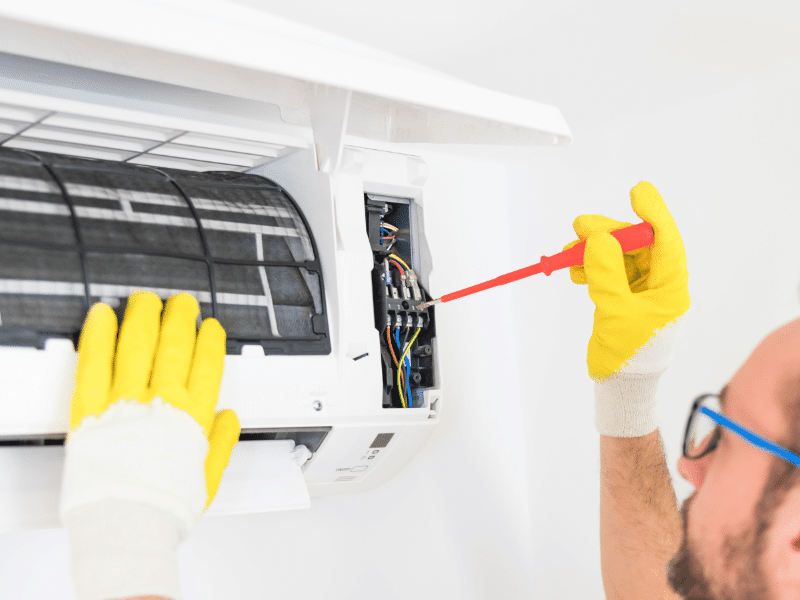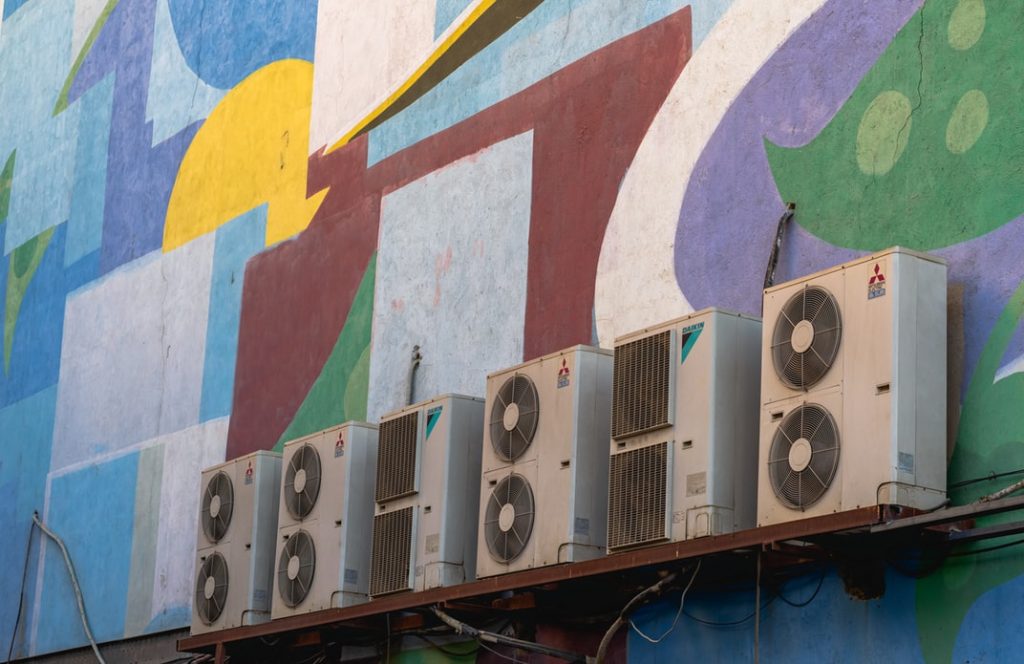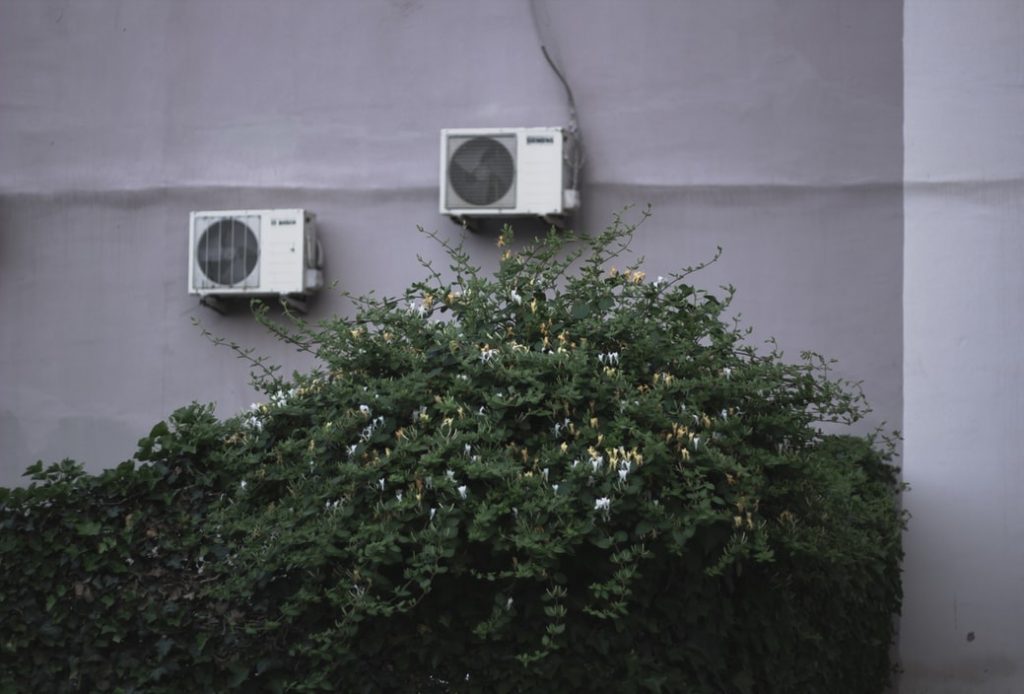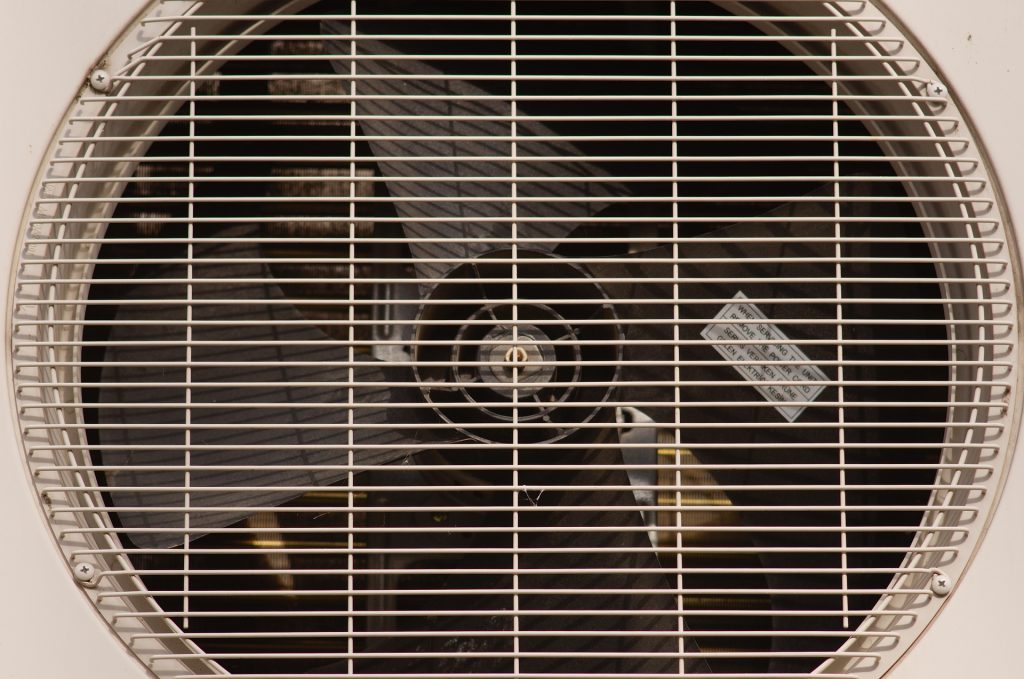We’ve all been there: it’s the middle of a sweltering summer day, and your AC unit decides it’s the perfect time for a break. The sweat beads start to form, and you’re left wondering, “Is it worth fixing my AC, or should I just get it entirely replaced?”. This is a question that plagues many homeowners, and we’re here to help you explore the answer.
We’ll tackle this topic with you, exploring the ins and outs of AC repair and replacement while sharing some valuable insights.
But while this blog post will provide guidance, consulting with a professional HVAC technician in Phoenix, AZ is always the best course of action for all your AC-related concerns.
Signs your AC isn’t working well
Here are some signs and symptoms that your AC isn’t working as efficiently as it should be, which will help you determine whether it’s worth getting your unit fixed.
-
- Unexpectedly high energy bills
If your energy bills are suddenly soaring without a corresponding increase in usage, your air conditioning unit might be working harder than it needs to. This could be due to a loss of air-conditioning efficiency, which may require professional attention.
-
- Inconsistent temperature throughout the home
Ever notice that some rooms in your house are colder than others? This could be a sign of an inefficient AC system. Don’t just brush it off as a quirk of your home. It’s worth getting a professional to take a look.
-
- Strange noises or smells
Air conditioners should run relatively quietly. If you’re hearing grinding, squealing, or other unusual noises, it’s time to contact a professional. Similarly, your AC should not produce any unpleasant odors; a musty smell could indicate mold inside your unit.
-
- Poor airflow
If the airflow from your AC unit is weak or nonexistent, this could be an indicator of its malfunctioning. Possible reasons could include anything from clogged filters to motor malfunction.
-
- Excessive moisture or leaks
While some condensation is normal for an AC unit, noticeable leakage or a pool of water near your system is a clear sign of a problem. It could be a refrigerant leak, which could potentially harm your health, so it’s vital to get this checked out by a professional.
Factors to consider when thinking about repairing vs replacing your AC
Several factors come into play when deciding whether to repair or replace your AC system.
Age
Consider the age of your AC unit. The average lifespan of an AC unit is 10 to 15 years. If your AC unit is over a decade old and requires frequent repairs, it might be time to consider replacing it with a new, more efficient model.
Frequency of repair
You should also take into account the frequency of repairs. A rule of thumb, often referred to as the “$5,000 rule”, helps many homeowners make this decision.
Multiply the age of your AC by the cost of the repair. If the result exceeds $5,000, replacement is generally the better option.
Efficiency
Consider the energy efficiency of your current unit. Newer models often contain advanced features designed to minimize energy use. If your current one has been contributing significantly to increases in your utility bills, investing in one that uses less power could be worth your while.
Modern AC units are specifically designed to use energy more efficiently, thus reducing electricity usage and the environmental footprint. Furthermore, older units often contain R-22 refrigerant, which contributes significantly to global warming.
Newer models, however, use environmentally-friendly refrigerants. Remember, proper disposal of the old unit is crucial to prevent the release of harmful substances into the atmosphere. Thus, upgrading your AC not only benefits your comfort and wallet but also contributes to the global fight against climate change.
Greater comfort
A new AC unit can greatly improve your comfort at home. With advanced features (such as programmable thermostats and variable speed motors), new AC units offer superior humidity control and temperature regulation.
The cost of a new AC unit
Purchasing a new air conditioning unit can vary in price due to a number of factors. These include:
-
- The type of the AC unit
-
- Its size
-
- The specific brand you opt for
On average though, the cost of a new AC unit ranges in several thousands of dollars, including installation costs.
High-efficiency models or those with advanced features may increase the initial purchase price. However, these could bring substantial savings on your energy bills in the long run, making them a worthwhile investment.
Note that average prices are often rough estimates, and actual costs can vary. You can use AHWA’s Installation Cost Calculator to get a better understanding of how much a new unit will cost for your specific needs.
If you need repairs or are ready to upgrade, trust American Home Water & Air
Maintenance of your HVAC system is of utmost importance, not only for personal comfort but also for the health and safety of your home. Recognizing potential issues early on may save money on repair costs.
However, upgrading to an energy-efficient model can drastically reduce your environmental impact while helping you save in the long run.
Ultimately, when deciding between repair and replacement, it’s always best to consult a professional HVAC Company in Scottsdale, Phoenix & Gilbert.
If you’re ready for a comfortable, cool home while also saving money and the environment, take the next step towards improved air conditioning now! We at American Home Water & Air are always ready to help.
Visit our Contact Us page today and let us assist you in pursuing a cooler, more sustainable lifestyle.









